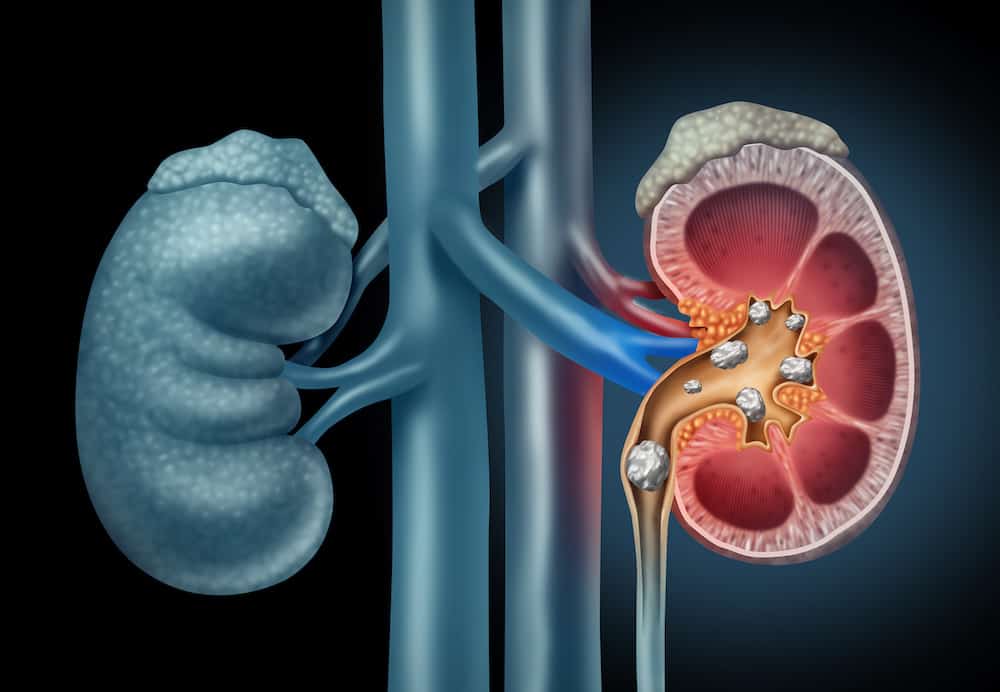7. Kidney problems

Kidney problems are a significant and potentially severe complication of Wegener’s granulomatosis. The inflammation in this disease causes damage in various organs, including the kidneys and may lead to the following problems.
- Glomerulonephritis: GPA often causes inflammation of the small blood vessels – called glomeruli – in the kidneys and causes glomerulonephritis. These glomeruli filter waste and excess fluids from the blood. When these structures become inflamed and damaged, the kidneys’ ability to filter blood effectively is compromised.
- Hematuria: One of the hallmark symptoms of kidney involvement in GPA is hematuria, which is the presence of blood in the urine. This can be microscopic (not visible to the naked eye) or gross hematuria (visible blood in the urine). Hematuria often prompts further evaluation and is a key indicator of kidney problems in GPA.
- Proteinuria: Another common sign of kidney involvement is proteinuria, which means excessive protein is in the urine. Normally, only a minimal amount of protein is filtered and excreted in the urine. Proteinuria is a sign that the filtering function of the glomeruli is impaired.
- Decreased Kidney Function: As GPA progresses and kidney damage accumulates, it can decrease kidney function. This can result in impaired kidney function, leading to symptoms such as fatigue, swelling (edema), and a buildup of metabolic and cellular waste products in the blood.
- Renal Insufficiency or Failure: In severe cases, prolonged inflammation and damage to the kidneys can lead to renal insufficiency or even kidney failure. When the kidneys are no longer able to adequately perform their vital functions, such as filtering waste and maintaining electrolyte balance, it becomes life-threatening and may require ongoing dialysis or a kidney transplant.
Of note, kidney involvement in GPA can vary in severity among individuals. Regular kidney function (GFR) monitoring through blood and urine tests is essential for individuals with GPA to detect any changes in kidney health early and guide treatment decisions.
